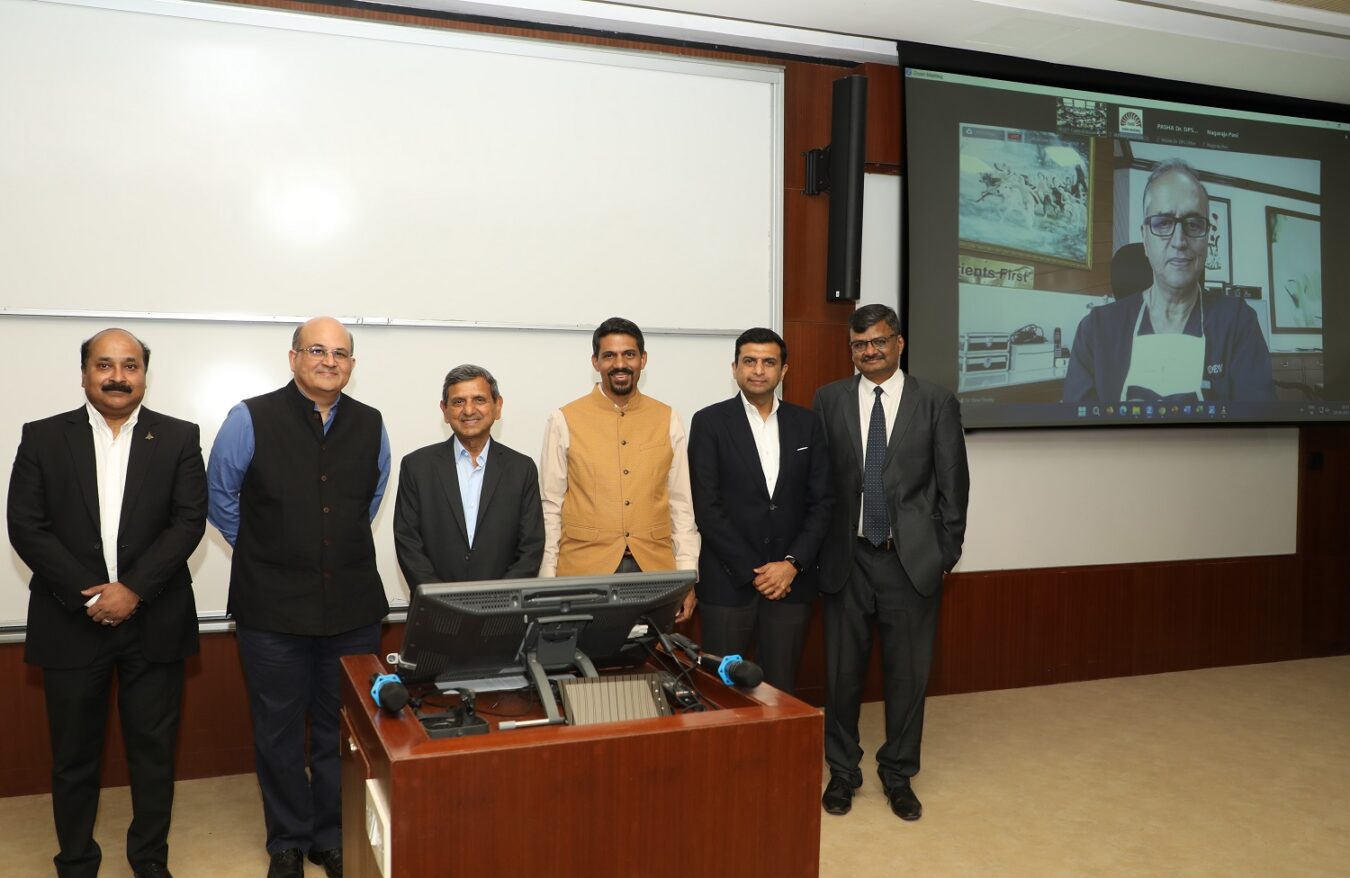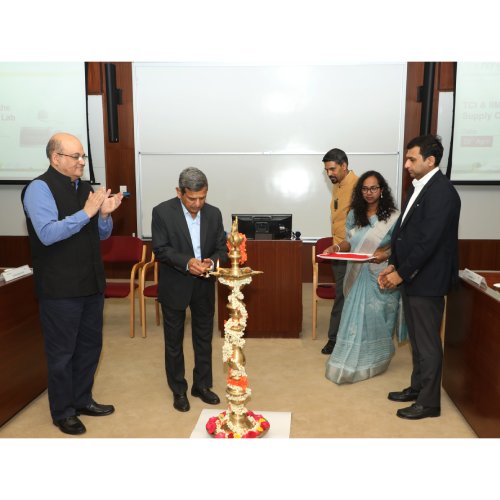Events
IIMB Community Engages in Global Climate Clock Assembly and Display Event on Earth Day
IIM Bangalore actively participated in the Global Climate Clock Assembly event on April 22, 2023, to mark Earth Day. The IIMB community collaborated to construct and display two Climate Clocks on campus. This initiative aimed to raise awareness about climate change and the urgent need for collective action.
The Climate Clock represents the countdown to a 1.5-degree Celsius temperature increase compared to pre-industrial levels. It considers the remaining carbon budget needed to reach this threshold, which is approximately 280 billion tons. At the current emission rate of 43 billion tons per year, this threshold is estimated to be surpassed in just over six years.
Prof. Haritha Saranga, Chairperson of the Sustainability Task Force at IIM Bangalore, emphasized the importance of unified efforts to address the climate crisis. Drawing parallels with the successful resolution of the Ozone layer crisis, Prof. Saranga highlighted humanity’s resilience and the need for immediate action.
The Global Climate Clock Assembly and Display event was organized by the Energy Swaraj Foundation in collaboration with AIM, NITI Aayog, and AICTE. Participants from academic institutions, corporations, startups, social organizations, and individuals worldwide were invited to join. The event featured a DIY Climate Clock kit, enabling easy assembly and serving as a visual representation of the limited time remaining to address the climate crisis.
IIMB constructed and showcased two climate clocks on campus. One was built by the student community of the two-year full-time MBA (PGP) and one-year full-time MBA (EPGP) programs, led by the ENS Club. The other clock was created by IIMB faculty, staff, and their children, guided by the Sustainability Taskforce.
Scientists predict irreversible climate changes once the 1.5-degree threshold is crossed. With current temperatures already 1.2 degrees above the ideal, we are witnessing intensified heatwaves, storms, floods, rising sea levels, and melting glaciers. Crossing the 1.5-degree threshold will lead to further severe consequences, such as increased coastal storms, heatwaves affecting a large population, coral reef degradation, and biome shifts.
The Climate Clock serves as a reminder for individuals to adopt eco-friendly behaviors, for corporations to embrace low-carbon technologies, and for governments to implement effective regulations. By reducing emissions, the time displayed on the Climate Clock can be extended, emphasizing the collective responsibility to combat climate change.
TCI and IIMB Partner to Launch TCI-IIMB Supply Chain Sustainability Lab


Leading logistics and supply chain solutions provider, Transport Corporation of India Ltd. (TCI Group), has partnered with Indian Institute of Management Bangalore (IIMB) to establish the TCI-IIMB Supply Chain Sustainability Lab. The lab, located at the IIMB campus, focuses on sustainable supply chain practices, dissemination, and advocacy, making it a unique center of excellence in this field.
The inauguration of the lab took place with esteemed cardiac surgeon Dr. Devi Prasad Shetty, Chairman and Executive Director of Narayana Health and Chairperson of the Board of Governors at IIMB, along with DP Agarwal, Chairman of Transport Corporation of India, unveiling the lab.
Dr. Devi Shetty emphasized the significance of the supply chain as a foundation for national development and the importance of addressing sustainability and digitalization challenges. He commended the lab’s potential in finding innovative solutions to these issues and reducing pollution-related diseases and costs.
Aligned with IIMB’s commitment to sustainability and innovation, the TCI-IIMB Supply Chain Sustainability Lab will play a crucial role as a resource for the academic community and the wider business fraternity.
The lab inauguration also marked the launch of the GHG Measurement Tool, named TEMT, by Vineet Agarwal, Managing Director of TCI Group. This tool enables the measurement and monitoring of transportation emissions across all modes of transportation and features a multilingual interface for wider adoption within India’s logistics and supply chain ecosystem.
The TCI-IIMB Supply Chain Sustainability Lab aims to conduct research, publish white papers, and offer consulting services on decarbonization, circular economy, sustainable procurement, and carbon-related mapping, measurement, mitigation, and management. It has already commenced research projects, white papers, and case studies and collaborates with organizations such as WRI India and Herbal Life.
The launch event concluded with a vote of thanks and a media interaction session with Prof. Rishikesha T Krishnan, Director of IIM Bangalore, and Vineet Agarwal.


